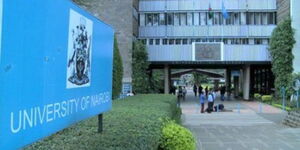In the past, Kenyans selling their second-hand cars often faced the reality of depreciation, receiving less money than the original purchase price.
Surprisingly, the current market is defying this trend, as owners are now experiencing a significant upswing with valuations soaring by as much as 50 percent.
Peter Munyoru, the Kenya Auto Bazaar's Secretary General, told Kenyans.co.ke that people looking to purchase cars are no longer rushing to the second-hand market due to increased excise duty which has led to an increase in import prices.
The situation has been worsened by the rising cost of living including the recent spike in fuel prices. As it stands, a litre of petrol is now retailing at Ksh217.
To avoid the extra charges, car buyers are increasingly preferring to buy vehicles from local sellers instead of importing. Others have also expressed a willingness to spend a premium to refurbish old cars to escape the high cost.
"This is the law of supply and demand. If the demand is high and the supply is low, the price will go up. Someone who has a car now is unlikely to dispose it off because the replacement will cost much more especially when selling to upgrade," he stated.
"A lot of people are holding onto their cars hoping that the prices will go down which is unlikely. Unless one goes for an old car which will cost a lot more than it did a year ago."
Munyoru estimated that since October last year, the value of second cars available locally has increased by close to 50 per cent while imports have dropped by nearly 35 per cent.
He explained that whereas the demand had gone up, most car owners were opting not to sell their cars therefore creating scarcity in the market hence driving up the asking price
"The imports are going down because there is no way you will import while not selling because Kenyans were used to a certain prices which is no longer the case," he added.
Peter Murima, the Chairman of the Motorists Association of Kenya (MAK) which has a membership of 300,000 car owners, agreed with Munyoru noting that in recent months, buyers were turned off by the increase in excise duty to 35 per cent.
"Buying used vehicles has always been high and it helps determine the prices of new cars which is why we advocate for them to be lower. Most buyers prefer purchasing locally because of high excise duty which was increased to 35 per cent," he revealed.
"The number of individuals buying second-hand cars locally available has gone up instead of importing, people prefer to buy locally even if they will be expected to service the cars before use."
He, however, refuted that prices had gone up because of the increase.
"The prices have not really increased because there are the normal prices for different makes and people know how much they cost. Especially small vehicles like Toyota Premio and Vitz," Murima added.
"We are taking care of each other because we absorb the cost of the increase in fuel prices as vehicle owners. You cannot keep adjusting prices every time,"
Since President William Ruto took over the reins, removed subsidies on fuel products and raised the Value Added Tax (VAT) from 8 per cent to 16 per cent, the transport sector has experienced a turbulent time.
In August, this writer observed that the intense traffic jams experienced along Nairobi roads had reduced because previous car owners opted to leave their vehicles at home for public transport.
A month later, however, they brought the vehicles back in preparation for surviving El Nino rains expected to affect the region starting this October.












